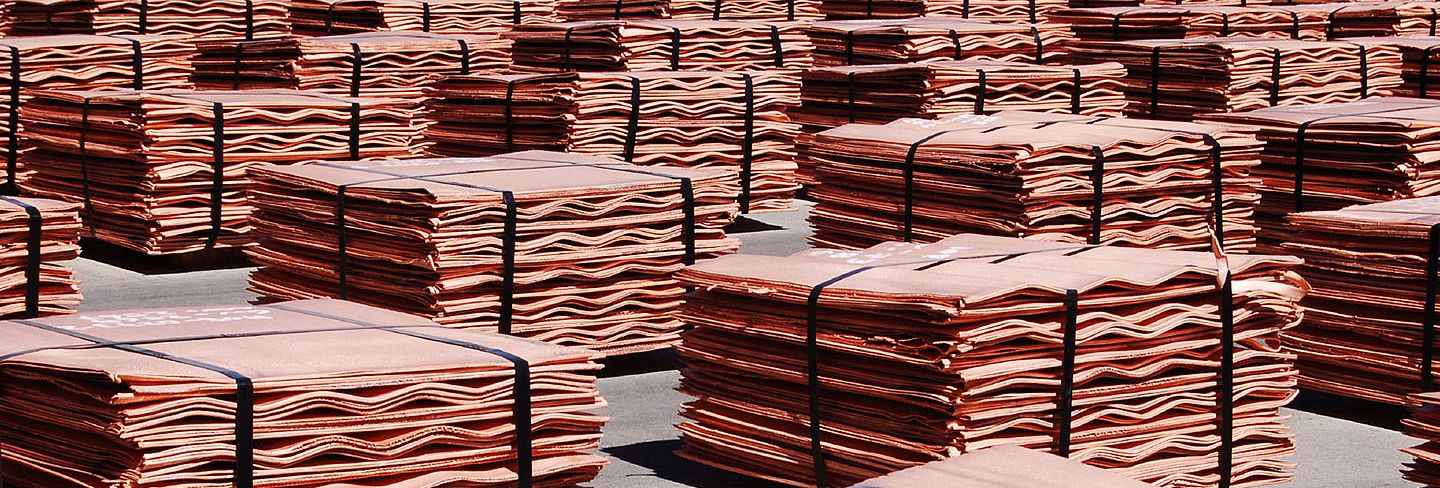Discovering the Adaptability and Sturdiness of Innovative Copper Products in Modern Layout
Exactly How Copper Products Contribute to Lasting Practices in Various Industries
In renewable power systems, for instance, copper improves the performance of solar and wind innovations, while its application in construction lessens waste with long life. As markets seek to take on even more sustainable practices, the function of copper can confirm critical in attaining environmental goals.
Copper in Renewable Resource
Copper plays an essential duty in the improvement of renewable resource technologies, acting as an essential conductor in numerous applications. Its phenomenal electrical conductivity and resistance to corrosion make it a suitable material for electrical wiring, which is important in solar panels, wind generators, and energy storage systems. In solar photovoltaic or pv systems, copper is used in the affiliations and circuitry, making it possible for reliable power conversion from sunshine to electricity.
In wind energy, copper is essential to the generators and transformers that transform kinetic power into electrical energy, ensuring optimal efficiency and integrity. The need for electric lorries (EVs) is boosting, with copper being a key component in batteries, electric motors, and billing framework. The transition to EVs dramatically enhances the need for copper, as these automobiles commonly utilize four times more copper than conventional internal burning engine cars.
As the world seeks to alleviate climate change and change to sustainable energy resources, copper's duty ends up being significantly vital. The material not only boosts the performance and toughness of renewable resource systems however additionally supports the broader objective of decreasing greenhouse gas discharges and advertising a sustainable future.
Eco-Friendly Building Products
In recent times, there has actually been a noteworthy shift towards the adoption of eco-friendly construction materials in action to expanding ecological problems. This adjustment is inspired by the need for lasting choices that reduce environmental footprints while maintaining architectural honesty and visual allure.
Copper, recognized for its longevity and recyclability, has emerged as a vital gamer in this industry. It can be utilized in roof covering, pipes, and electrical systems, adding to energy efficiency and minimizing waste. Copper's durability suggests fewer replacements over time, more boosting its sustainability account.
In addition, materials such as bamboo, recovered wood, and reused steel are getting appeal. These alternatives not only supply decreased environmental influence but additionally promote resource preservation. As developing codes progressively highlight sustainability, engineers and building contractors are incorporating these materials right into their tasks, promoting innovation in layout.
The increasing fostering of green building and construction materials mirrors a more comprehensive commitment to sustainability in the developed environment. By prioritizing these products, the building industry can substantially lower its carbon impact, straighten with regulative requirements, and sustain a healthier environment for future generations. This pattern notes a critical step in the direction of an extra sustainable future in construction.
Copper's Duty in Health care
Current researches have actually highlighted the significant role of copper in healthcare settings, particularly because of its antimicrobial properties. Copper surfaces have actually been revealed to decrease the visibility of pathogens, including viruses and microorganisms, by approximately 99.9% within a brief period. This remarkable efficiency makes copper an indispensable product for high-touch surfaces in health centers, such as doorknobs, bed rails, and IV poles, consequently adding to boosted infection control steps.
In addition to its direct antimicrobial impacts, copper additionally plays a duty in the more comprehensive context of medical facility sustainability (Copper Products). By incorporating copper into medical equipment and furnishings, health care centers can reduce the incidence of healthcare-associated infections (HAIs), which not just boosts individual outcomes but likewise decreases the prices connected with extensive hospital stays and extra treatments
Additionally, copper's longevity and recyclability line up with lasting practices, permitting liable source management. As healthcare systems increasingly prioritize both client safety and ecological stewardship, the assimilation of copper products is becoming extra prevalent. This dual benefit highlights copper's important contribution to a much healthier, safer, and extra lasting medical care setting.
Sustainability in Transportation

Additionally, copper's toughness and deterioration resistance add to the durability of transportation infrastructure (Copper Products). In rail systems, for instance, copper elements boost the integrity and effectiveness of signaling and power systems, necessary for minimizing hold-ups and power usage. Furthermore, copper's duty in renewable energy systems, such as solar and wind, supports lasting transport solutions by providing tidy power for electrical transportation options
Investments in copper modern technology not just foster sustainability but likewise promote financial growth and job production in environment-friendly sectors. As sectors make every effort to meet rigorous ecological laws, the application of copper products in transportation arises as a crucial approach in accomplishing sustainability goals and promoting a cleaner, more efficient future.
Copper and Round Economic Situation
As the globe progressively embraces sustainability, this hyperlink the function of copper in the round economic situation ends up being ever before extra considerable. Copper's inherent homes-- such as its conductivity, recyclability, and resilience-- placement it as a vital material in a resource-efficient economy. The round economy aims to minimize waste and take full advantage of resource use through recycling and reusing products, and copper master this respect.
The steel can be reused forever without loss of quality, making it a perfect prospect for sustainable practices across various sectors, including building and construction, electronic devices, and renewable resource. By recovering and reprocessing copper from end-of-life items, sectors can significantly lower the requirement for virgin products, therefore reducing environmental effects related to mining and processing.
Moreover, the combination of copper into round economic climate structures not only saves click here now resources however also cultivates innovation. Organizations that prioritize copper recycling contribute to an extra lasting supply chain, enhancing their competitiveness while straightening with governing demands and customer choices for eco liable products.
Verdict
To conclude, copper items substantially add to sustainable techniques across multiple industries. Their vital role in improving renewable resource technologies, promoting green construction materials, supporting infection control in medical care, facilitating lasting transport, and embodying the concepts of a round economy emphasizes the adaptability and value of copper. By integrating copper into different applications, markets can achieve better performance, minimize ecological effect, and align with global sustainability goals, inevitably fostering an extra sustainable future.

Copper's outstanding conductivity makes it a favored material in electric vehicle (EV) systems, enhancing power efficiency and performance. Additionally, copper's duty in eco-friendly energy systems, such as solar and wind, supports lasting transportation solutions by offering tidy energy for electric transportation options.
Their necessary duty in boosting eco-friendly power technologies, find this promoting green building and construction products, supporting infection control in healthcare, promoting sustainable transportation, and embodying the concepts of a circular economic situation emphasizes the convenience and significance of copper.